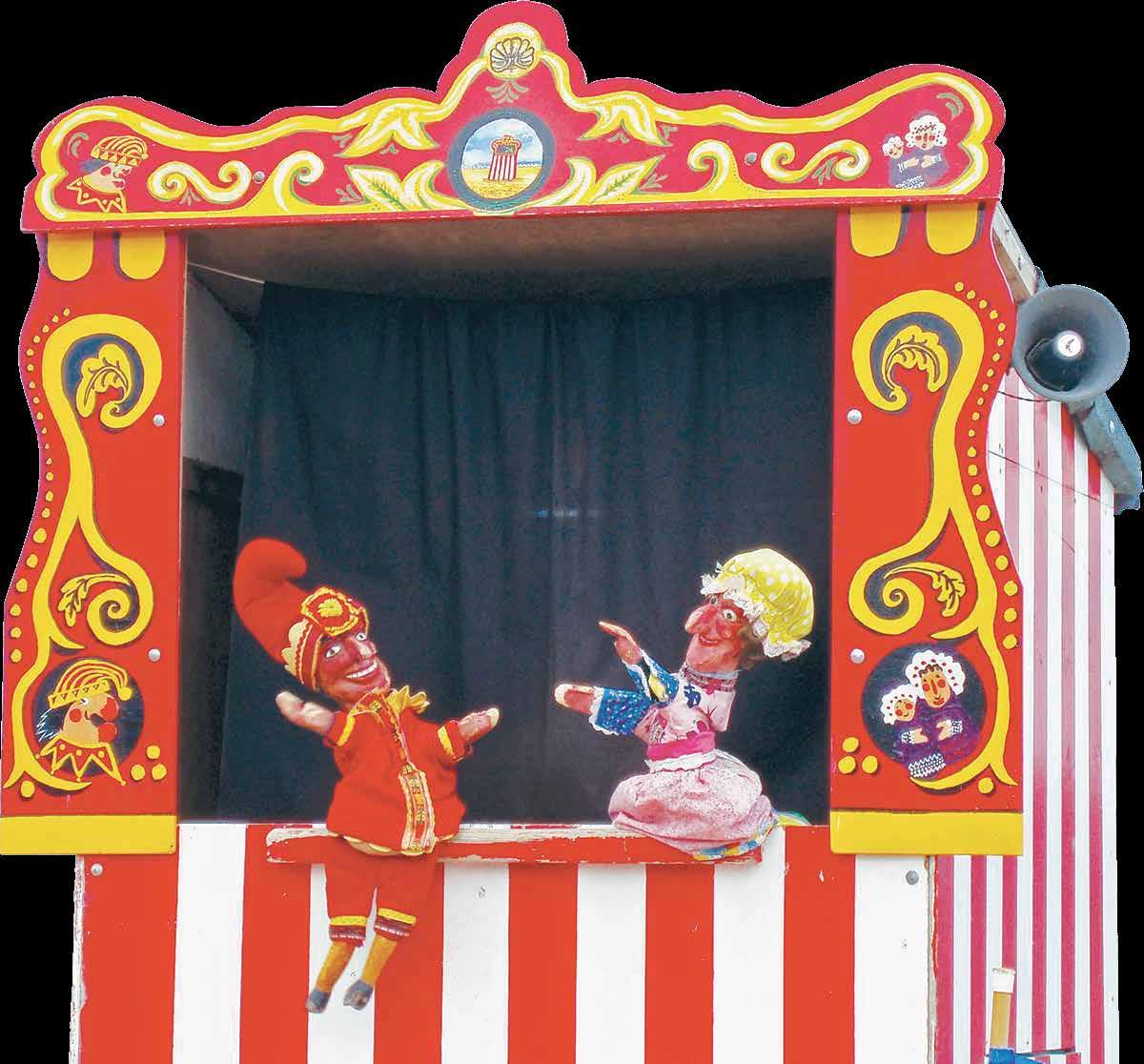
3 minute read
Giving Back Control From “What” to “Who
Control From “What” to “Who”
By Rev David Coleman
’ve been involved with puppetry for a very long time: way back in the 80s, I was part of a European youth film movement, where my perhaps somewhat scary animated puppet films got me around to festivals in Belgium, Germany and Italy. I managed to get a small commission from the BBC for an item in the ‘Golden Oldies picture show, to accompany the Dubliners’ ‘Seven Drunken Nights’, and you can find bootleg versions still on YouTube, where the comments speculate as to who made it and how. I know it happened by being shut in a room with hot lights and a lot of plasticine for seven weeks.
Like many ministers. I’ve found it useful in what folk think of as the ‘children’s’ address slot, to bring in puppets. Not at all just for the children: they’re excellent icebreakers, and like Rod Hull’s emu, people readily accept the phenomenon of them developing a character of their own. What’s even more intriguing is that the characters a puppet exhibits are not always at all the same as their handlers.
Live action/glove puppets mean you can get a video clip together very much faster than with traditional stop-motion animation, though digital techniques also cut corners in what seems an indecent way, thinking back to when I really did have to make 25 adjustments per second. In my work with congregations, they’re even faster than that.
As environmental chaplain, my stable of puppets (- concentrating on those which are functional enough to admit an adult hand and permit some real characterisation, rather than just waving around -) has been growing. Orang-utans are there, reminding us of their plight as their habitat is eradicated for palm oil. The polar bear and the endangered, but vital bee, whales, British seabirds whose migration is vulnerable to climate. I have sheep who can be both lost and found. I have a panda on order! And the human race is represented too – by Punch and Judy! My ostrich introduces the futility of climate denial. But then I have to apologise for the groundless myth about heads in sand!
Let them run wild in a congregation for a few minutes, and you’re getting across the message about the Communion of Creation; that we share God’s beautiful planet with ‘all flesh’, in the covenant renewed in Christ’s self-giving. And it belongs, with complete appropriateness, with wonder at and love for biodiversity, gently re-defining the narrowness of our vision of the Kingdom of God. Wherever possible, I like people to keep the animals with them for the duration of the service: in sight, in mind.
There’s another, deeper and more subtle lesson, which is evident in the extreme dedication of professional puppeteers: there are skills to learn, and significant physical fitness is involved if you are providing an evening’s live show. It’s a different sort of self-giving from up-front acting.
What moved me most on a short course with a professional puppet company last year was the point at which, whilst supporting and sustaining the puppet, the handler lets go control to what has been until then a few bits of wood and/or fabric. That’s when wonders happen. Using blue-screen in films, the puppeteer is not seen, but they’re still there, giving life.
In a framework of respect and acknowledgement of personality as well as interdependence. Yes, it’s reminiscent even of when we celebrate eucharist/holy communion: we gather and provide and facilitate and enable, but the central celebration of Christianity, I would suggest, in all traditions, involves a surrender of control and determination to life beyond our own life; power beyond our power, in the wonder of relationship.
Communion is impossible without our participation, but equally impossible if we only “take back control”, which attitude is killing the Earth. The crises we’re experiencing give terrifying meaning to the concept of being ‘out of communion’.
Absolutely the greatest spiritual contribution of Pope Francis’ encyclical Laudato Si, and much other inspirational writing on faith and the environment is the recovery of the imperative of acknowledging the sentience of creatures, the personhood of the earth. Moving in our dealings with Creation from object to subject. From ‘what’ to ‘who’.








